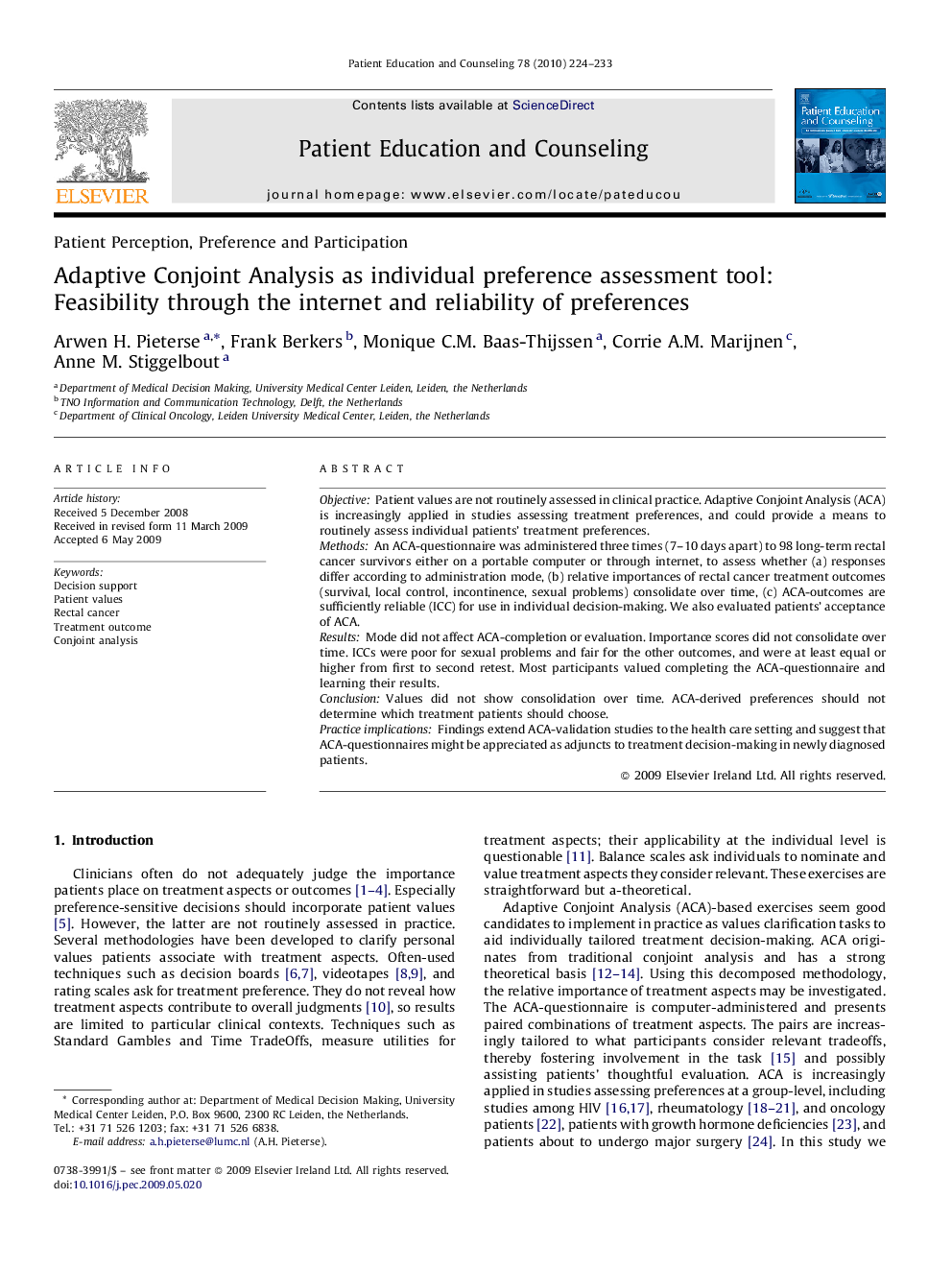| کد مقاله | کد نشریه | سال انتشار | مقاله انگلیسی | نسخه تمام متن |
|---|---|---|---|---|
| 3815723 | 1246093 | 2010 | 10 صفحه PDF | دانلود رایگان |

ObjectivePatient values are not routinely assessed in clinical practice. Adaptive Conjoint Analysis (ACA) is increasingly applied in studies assessing treatment preferences, and could provide a means to routinely assess individual patients’ treatment preferences.MethodsAn ACA-questionnaire was administered three times (7–10 days apart) to 98 long-term rectal cancer survivors either on a portable computer or through internet, to assess whether (a) responses differ according to administration mode, (b) relative importances of rectal cancer treatment outcomes (survival, local control, incontinence, sexual problems) consolidate over time, (c) ACA-outcomes are sufficiently reliable (ICC) for use in individual decision-making. We also evaluated patients’ acceptance of ACA.ResultsMode did not affect ACA-completion or evaluation. Importance scores did not consolidate over time. ICCs were poor for sexual problems and fair for the other outcomes, and were at least equal or higher from first to second retest. Most participants valued completing the ACA-questionnaire and learning their results.ConclusionValues did not show consolidation over time. ACA-derived preferences should not determine which treatment patients should choose.Practice implicationsFindings extend ACA-validation studies to the health care setting and suggest that ACA-questionnaires might be appreciated as adjuncts to treatment decision-making in newly diagnosed patients.
Journal: Patient Education and Counseling - Volume 78, Issue 2, February 2010, Pages 224–233